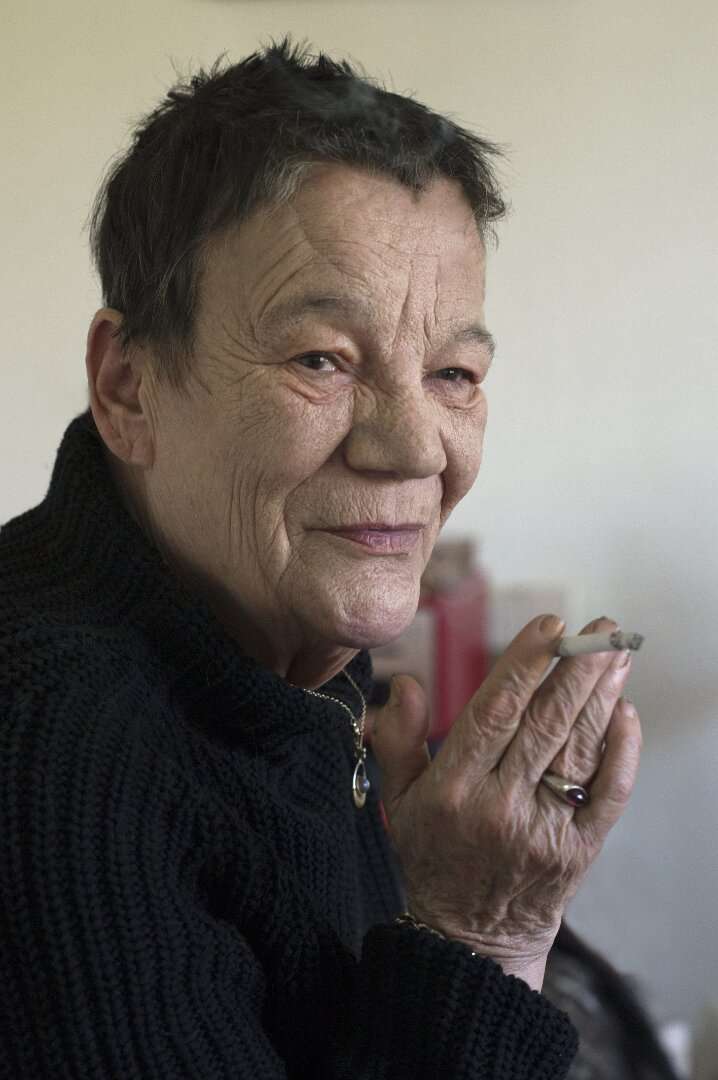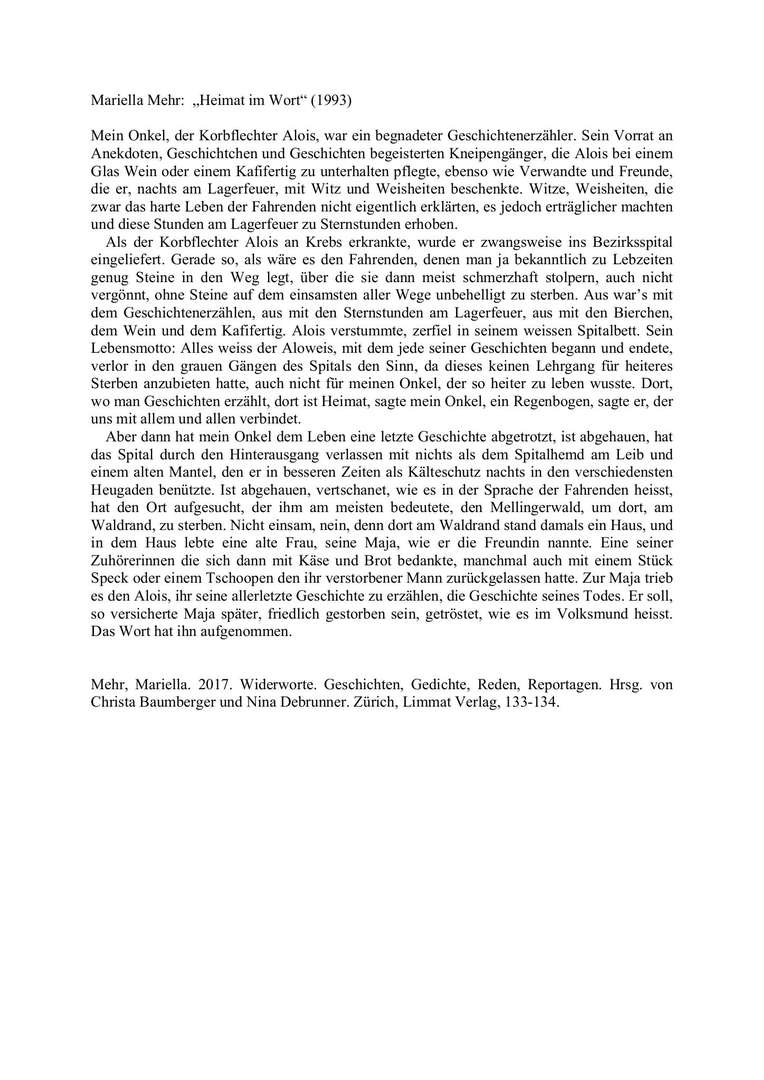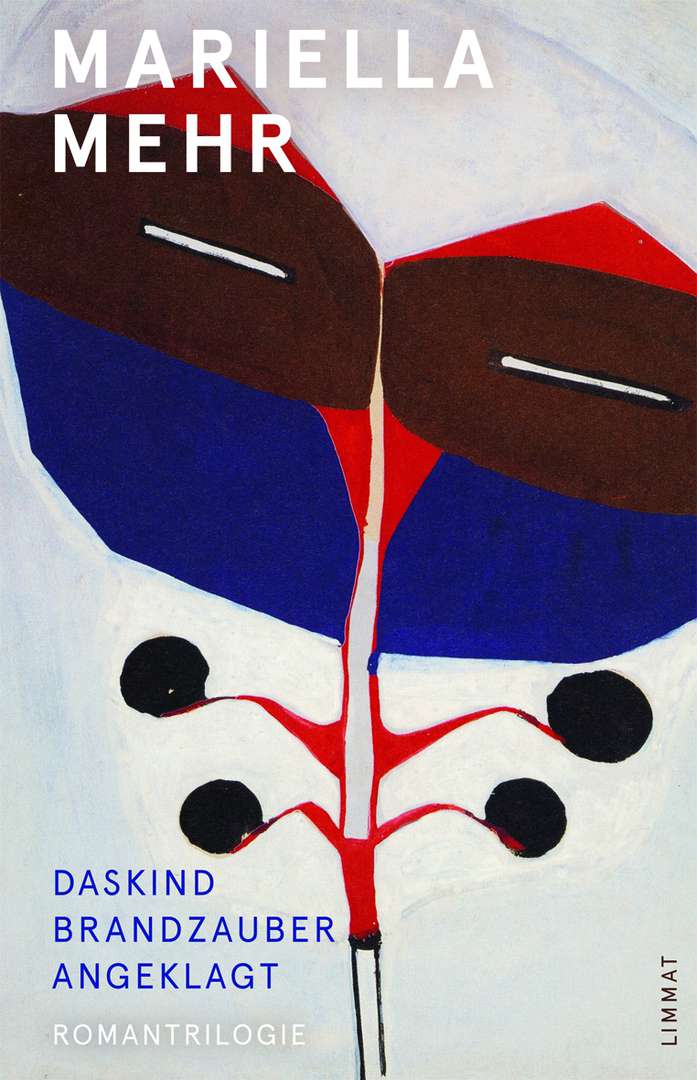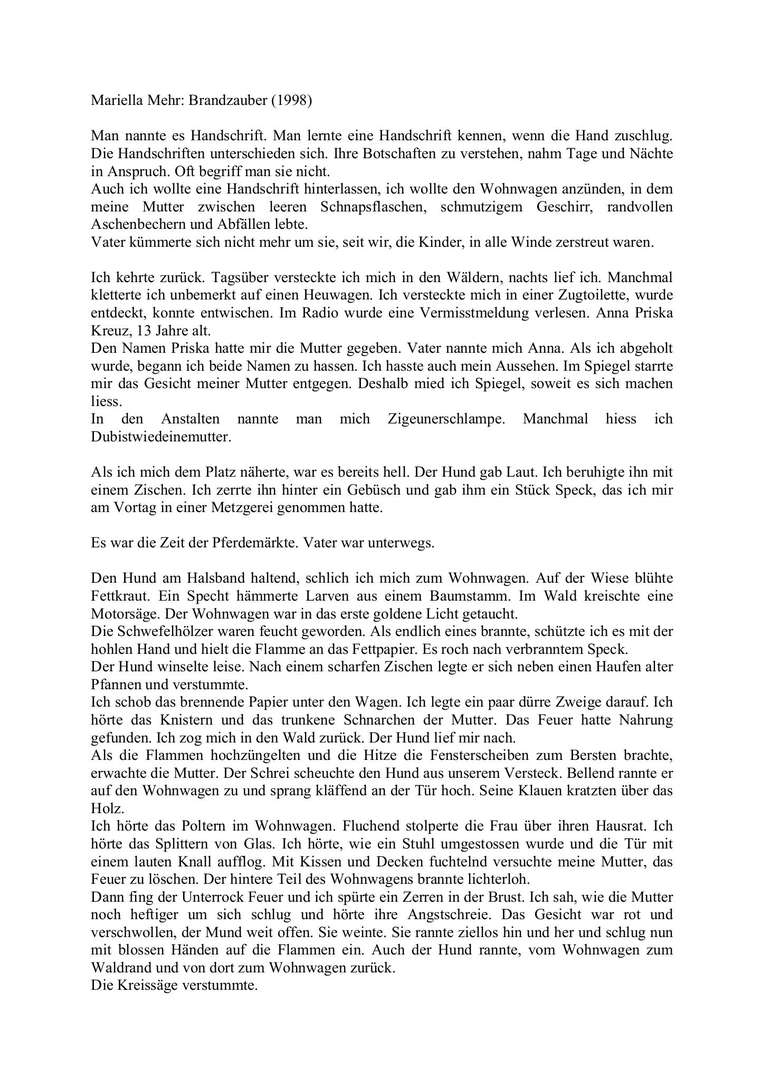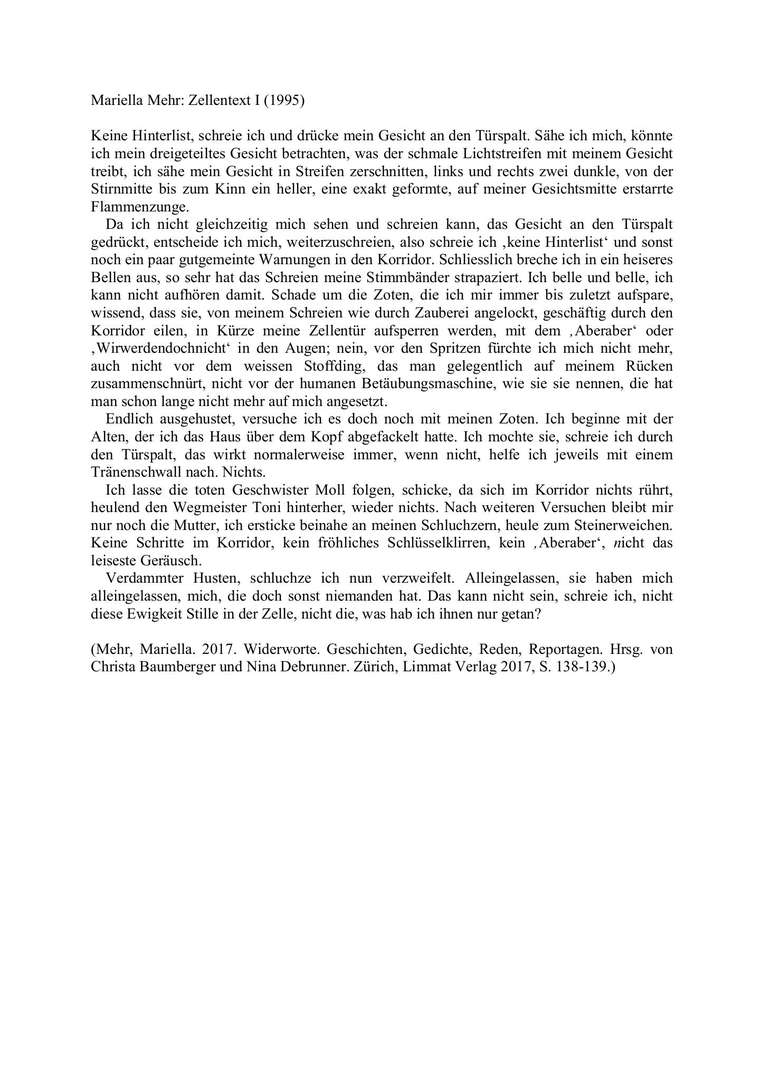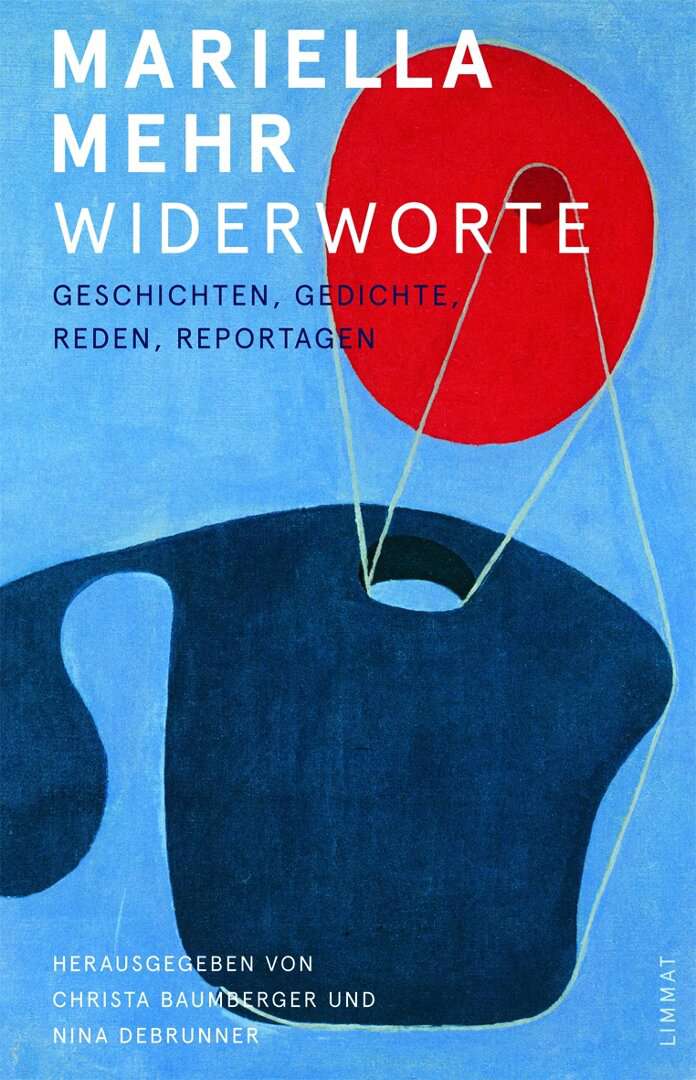Mariella Mehr’s literary oeuvre stands out in Swiss literature for her choice of subject matter and the radical way she treats it. As a member of the Yenish people and a victim of the programme ‘Hilfswerk für die Kinder der Landstrasse’ [Charity for the Children of the Country Road] run by the Swiss organisation Pro Juventute, her writing has an existential urgency not frequently found in Swiss literature. The subject matter to which she gives literary form remains socially and politically controversial and insufficiently addressed to this day. Born in Zurich in 1947, Mariella Mehr gained international prominence in the 1980s for her dedicated involvement in exposing and investigating ‘Kinder der Landstrasse’ – a state-sponsored ‘charity’ programme that systematically and forcibly took away Roma and Yenish children from their parents and had them adopted by families of the Swiss majority population.
Mehr’s journalistic and literary activities are fundamentally informed by her attempts to come to terms with her Yenish origins and her own woeful history. In reportage such as Alptraum der Embryos [The Embryos’ Nightmare] (1975) and, at greater length, in her first, unmistakeably autobiographical novel Steinzeit [Stone Age] (1981), she describes her harrowing childhood and youth in a foster family and in various children’s homes. These early texts already attest to Mehr’s search for a fitting language to describe her experiences of violence.
Mehr dwelt on the Pro Juventute programme in numerous journalistic articles. In addition, she adapted the files that had been compiled about her into a drama: Akte M. Xenos ill. 1947 – C. Xenos ill. 1966: Ein Theaterstück, [File M. Xenos ill. 1947 – C. Xenos ill. 1966: A Play]. First staged in Bern in 1986, it provoked strong reactions and was published in book form in the documentary Kinder der Landstrasse. Ein Hilfswerk, ein Theater und die Folgen [Children of the Country Road: A Charity, a Theatre and the Consequences] (1987). Mehr continued addressing the issue of Travellers in Switzerland in numerous articles, columns and letters to the editors until well into the 1990s.
In Mariella Mehr’s literary texts, by contrast, the Yenish occupy only a marginal place. Heimat im Wort [Homeland in Words], for instance, is an affectionate portrait of her uncle, a basket weaver who, shortly before his death, returns to the forest to die in peace. Two shorter prose texts are devoted to her sorrowful family history: von der unlust der sinnlichkeit am tontaubenschiessen oder von der wollust des habichts am töten des huhnes [of the aversion to sensuality in clay pigeon shooting or of the pleasure taken by the hawk in killing the chicken] (1987) and Phralalen, Pejalen Mama. Quante Mamera. Liebe Mutter (1996).




